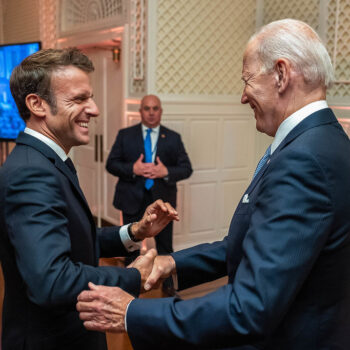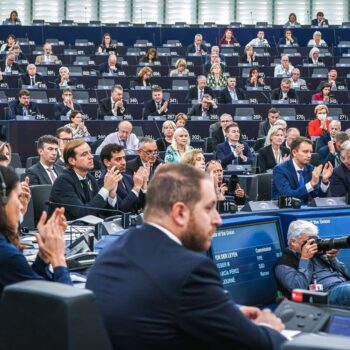The Inflation Reduction Act (IRA) puts the US on track to achieving its 2030 Nationally Determined Contribution under the Paris Agreement. EU leaders, like Commission President Ursula von der Leyen, welcomed the IRA’s final passage and the US living up to its climate promises. But now, the EU, including several member states, have raised concerns over certain provisions that may benefit US producers over foreign ones.
This briefing seeks to explain the political economy dynamics behind both the passage of the Inflation Reduction Act and the European response. As the green transition reaches the implementation phase, trade conflicts are likely to continue, especially as countries try to maximise their share of new clean energy markets. This briefing outlines the challenges facing the transatlantic partnership and what is at stake if the disagreement over the IRA is not resolved.
To address the immediate trade tensions ignited by the IRA, the EU and the US can explore a range of scenarios. These include mitigating domestic content requirements for EU companies, bringing the issue before the World Trade Organization (WTO) or implementing retaliatory tariffs. Other options may involve setting up a transparency mechanism in current and future subsidy regimes, temporarily pausing WTO complaints while dialogue continues, and commissioning an independent assessment on expected changes to investment and trade patterns due to subsidy programmes.
Regardless of how the two sides address the conflict, the present situation underscores the need for the EU and the US to collaborate on long-term measures at the climate and trade nexus. To avoid future trade tensions and maintain the integrity of the transatlantic relationship, the EU and US should:
- Commit to greater coordination and strategic dialogue on competition issues, as well as on reform of trade rules for the green transition in fora such as the international climate club or the EU-US Trade and Technology Council;
- Develop a joint approach to a longer-term reform of the trade regime and coordinate on green subsidies, including at the WTO. This would ensure a resilient rules-based approach that enables fair market access to clean technologies and market opportunities for emerging and developing economies.
Read the briefing for analysis from E3G and adelphi, including possible scenarios for transatlantic trade relations post-IRA.



